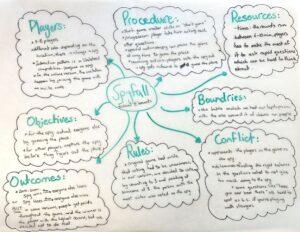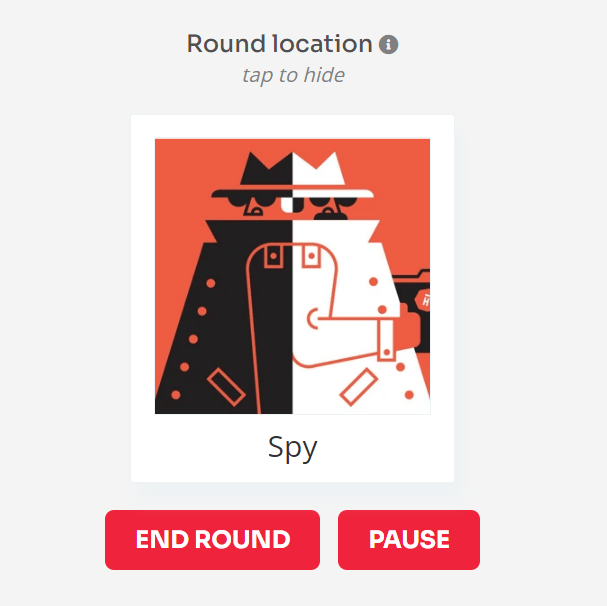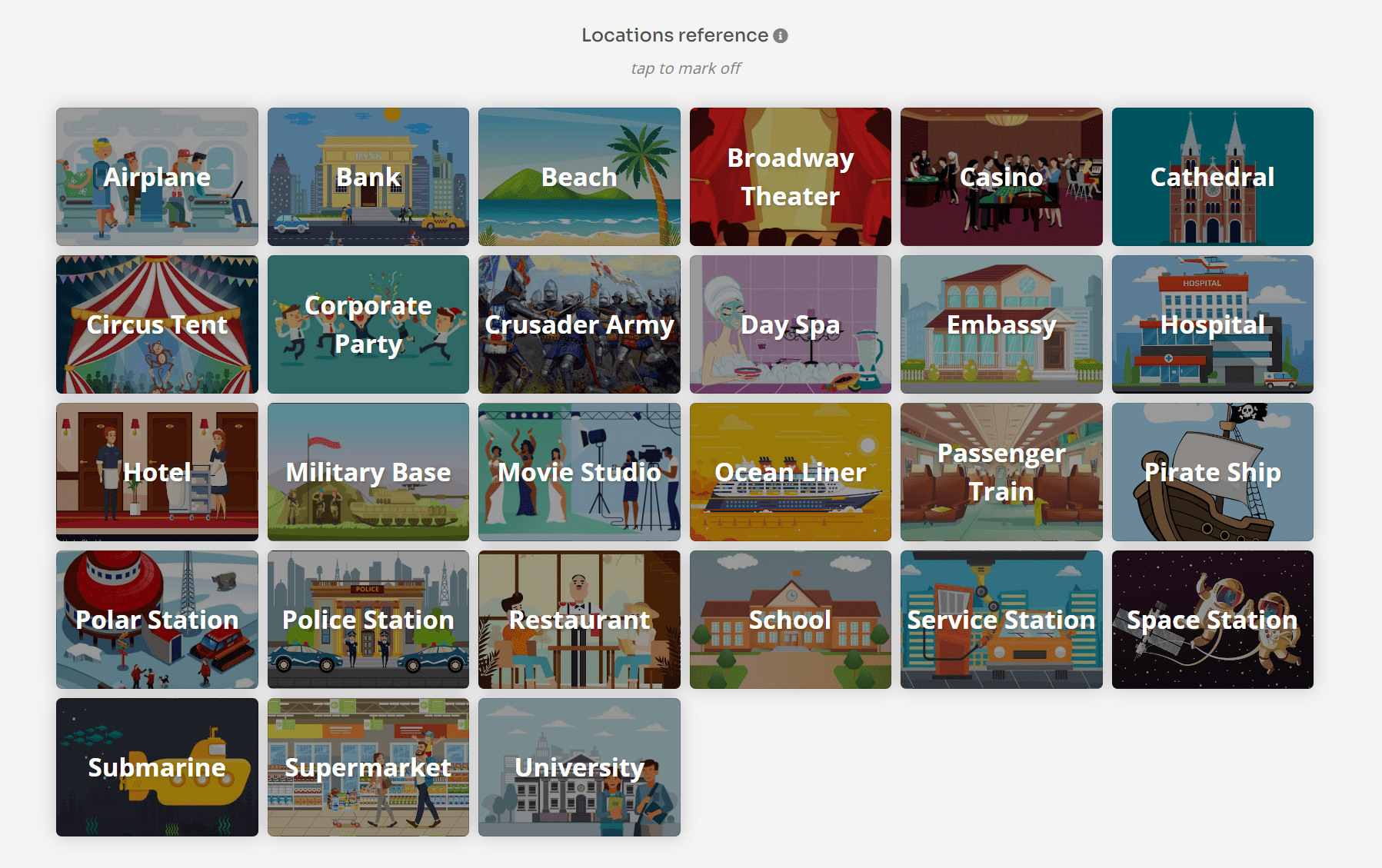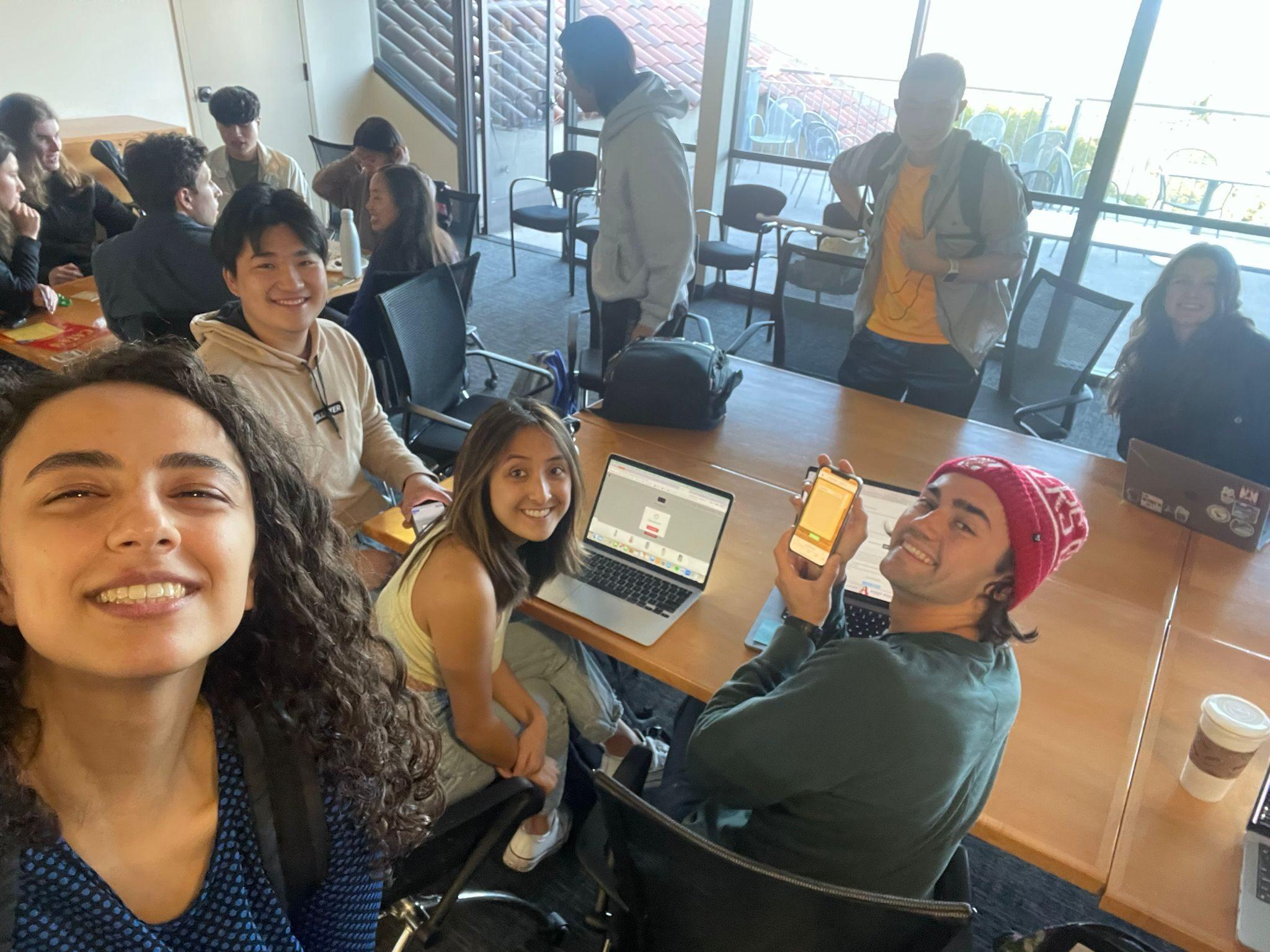For this week’s critical play, we played Spyfall. I had played it before only with physical cards. I liked that game previously as it was a fun party game, but I never tried to reflect on it and on its design like I did this week.

Here are some of the information about it:
- Name of game, creator, platform
- The game is Spyfall. It was created by Alexandr Ushan, and we played it online on its website. The game was released in 2014 and has been nominated to several awards and it won some.
- Target audience (as best you can discover from research or the games messaging):
- Online shops have the game for ages +13, but I can see how someone younger (e.g. 10 years old) could still play it and enjoy it.
- Notable elements of the game: how many players? What actions can players take? How do rounds work? Do they do anything interesting with player relationships/objectives/resources? (refer to Formal Elements for this!)
- I think a visual answer would be better for this questions:

- Kinds of fun:
- The game uses challenge as the main kind of fun in it. Non-spy players are challenged to figure out who the spy is, while the spy is challenged to stay under the radar and figure out the location in each round. In many other games, there are more than one kind of fun integrated to create a full experience, while in Spyfall I did not see that. This made the game a not-too-fun game to play for when players aren’t challenged, it just falls.
- Compare the game you chose to other games in its genre. What differentiates it from the other games? Is it better/worse? How so?
- Similar to other social deduction games, the spy has to outwit other players in the game and blend in as one of them. In contrary to games like Mafia or Wereworlf, there is a piece of information that everyone knows except for the spy, which is the location. In other words, spies don’t know what they don’t know, while in a game like mafia, if you’re a mafia member, then the others are civilians. Spies have to ask generic questions to act like they know the place while trying to make sense of other people’s answers. Therefore, spies need to have more than a convincing act that they are “good”, but rather a solid knowledge of the place (or at least look as they do) to not get caught. This makes the game harder for both sides, as players also have to make sense of each answer even if the question asked is bad, and they also need to find the balance in question to give them enough information about the other person, but not give too much away to the spy.

- Was the game fun? Why or why not?
- The game is usually fun. I had played it before with friends, it was a hilarious game to play as we knew each other well and it is even in some of my best memories of last year. Playing with friends with an established relationship with them, means that there is a better understanding of their personalities and communication styles. In this week’s game however, the game started with complete strangers, so it was hard to know people’s personalities, and whether they are just quiet, shy, or a spies. It took us a couple of rounds to break the ice and get looser with each other, and that is when it became more fun.
- Another reason the game was a bit boring was the fact that there were 8 players at some point. This made the rounds pretty long, and it felt like only few people are playing.
- Moments of particular success or epic fails (in your opinion)
- In the first round, there were people that haven’t played it before. Some of the questions when the location was a school were: “Do you live near this place?” to which someone answered “Yeah, in it actually” and “Are you a teacher in this place”. These questions and answers made the location extremely obvious and resulted in the spy guessing the place, and the game got somewhat boring, as we were making absolute random guesses on who the spy is which didn’t make sense.
- One last thing that I feel was a failure in the game is the fact that it lists all possible locations at the bottom of the page. Spies can quickly turn the game into a Guess Who (where?) match instead of trying to make sense of the answers.

- Things you would change to make the game better
- I already knew about something that didn’t work in the past. I come from Jordan, and when we played it there we found that some places weren’t ones that we have. A metro station, an open-top tourism bus, or even a jazz club. It didn’t make sense to use questions like “Have you been there” and such. Furthermore, when we were to ask if someone had used it, it was hard to know if that person used it on their travels for example, and it just made the game feel irrelevant. So what I would suggest is making different localized versions of the game. Or, better yet, what if the game was made with locations around the world? Petra in Jordan, China’s wall, Taj Mahal and others could make the game relevent to players around the world.
- Another thing was that we used the online version yesterday. We would turn and hide our laptops when we started the game (until we realized there is a hide option). I missed the physical part of the game; when you would hide the card in you pocket, try and not make anyone see it, and then flip it over to reveal your identity at the end of the game, I missed THE DRAMA there.
- Finally, I wanted to look up different variations of the game and found DC Spyfall with the places being the DC superhero world. It just seemed like a cool idea to appeal to other people or even as a gift option, especially that superhero movies are popular around the globe.



